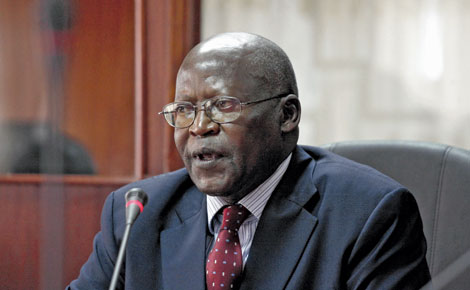×
The Standard e-Paper
Smart Minds Choose Us
 |
| PHILIP TUNOI PHOTO: COURTESY |
Kenya: Senior judges have been ordered to retire in a controversial decision that has sparked protests against the Judicial Service Commission (JSC).
The row centres around two conflicting constitutional requirements over the retirement age that affects 38 judges.